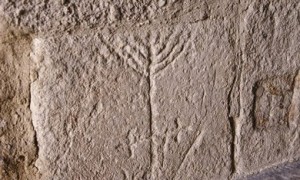Happy Birthday Cervantes
 Today is Miguel de Cervantes’ birthday. Cervantes is one of the most famous writers who ever lived – the author of “Don Quixote”. His birthday is September 29, 1547. Basically, he was born 55 years after the expulsion of the Jews of Spain. The majority of those who were not expelled lived a double life – outwardly Christian, inwardly Jewish. These people were called “conversos” i.e., converts or, mockingly, “maranos” i.e., pig eaters. The first generation born to marano parents were a tortured generation. Some embraced their Judaism and, if found out, were burnt at the stake as heretics. Others, like the patron saint of Spain, Saint Teresa of Avila, embraced their forced Christianity with a vengeance. Still others lived in the grey zone between Christianity and Judaism. For them, life became an allegory – and actions became metaphor. Everything they did had a double meaning. They constantly wore a mask. If it slipped, they could pay with their lives. For years it’s been suspected that Cervantes was one of these people.
Today is Miguel de Cervantes’ birthday. Cervantes is one of the most famous writers who ever lived – the author of “Don Quixote”. His birthday is September 29, 1547. Basically, he was born 55 years after the expulsion of the Jews of Spain. The majority of those who were not expelled lived a double life – outwardly Christian, inwardly Jewish. These people were called “conversos” i.e., converts or, mockingly, “maranos” i.e., pig eaters. The first generation born to marano parents were a tortured generation. Some embraced their Judaism and, if found out, were burnt at the stake as heretics. Others, like the patron saint of Spain, Saint Teresa of Avila, embraced their forced Christianity with a vengeance. Still others lived in the grey zone between Christianity and Judaism. For them, life became an allegory – and actions became metaphor. Everything they did had a double meaning. They constantly wore a mask. If it slipped, they could pay with their lives. For years it’s been suspected that Cervantes was one of these people.
Were Cervantes’ allegories and metaphors driven by a secret? Is the secret a Jewish consciousness? For the longest time it was impossible to investigate these matters. But there’s a new atmosphere in democratic Spain. Some probable descendants of conversos e.g., world tennis champion Rafael Nadal don’t seem interested in exploring their roots. But many other Spaniards are now searching for their hidden Jewish past.
One community that is publicly celebrating its Jewish history is the Spanish municipality of Zamora. Mayor Rosa Maria Valdeon has announced that Zamora will soon erect signs identifying places of Jewish historical interest. Nine places have been identified for sign posting, including the entrance to Valorio Park, the site of a Jewish cemetery that has long ago disappeared. Zamora is beginning to understand that it was once one of the greatest centers of Jewish life on the Iberian Peninsula. In honour of Zamora’s initiative, Abraham Haim, president of the Council of the Sephardi and Oriental Communities, gave a presentation on the encoded references to Jewish knowledge in Miguel de Cervantes’ classic “Don Quixote”.

Haim points to repeated references to the Jewish holiday of Sukkot/Tabernacles as the most compelling evidence that Cervantes’ origins were Jewish. We just celebrated this holiday last week. Perhaps Cervantes was referencing Sukkot because he was alluding to his own birthday. To the best of my knowledge, however, the most compelling evidence for Cervantes’ Jewish identity is the title of his book “Don Quixote”. In Spanish, the term “Quixote” is meaningless. But in a Jewish context it has profound meaning. On every Sabbath, when the Torah is removed from its ark and prepared for reading, this Aramaic term is chanted. It means “truth”. So the words “Don Quixote” literally translate into “man of truth”. The nice thing is that after more than 500 years, the truth about Cervantes and the conversos is finally coming out.
Click here to see my recent article “Last of the Minoans” on The Times of Israel

